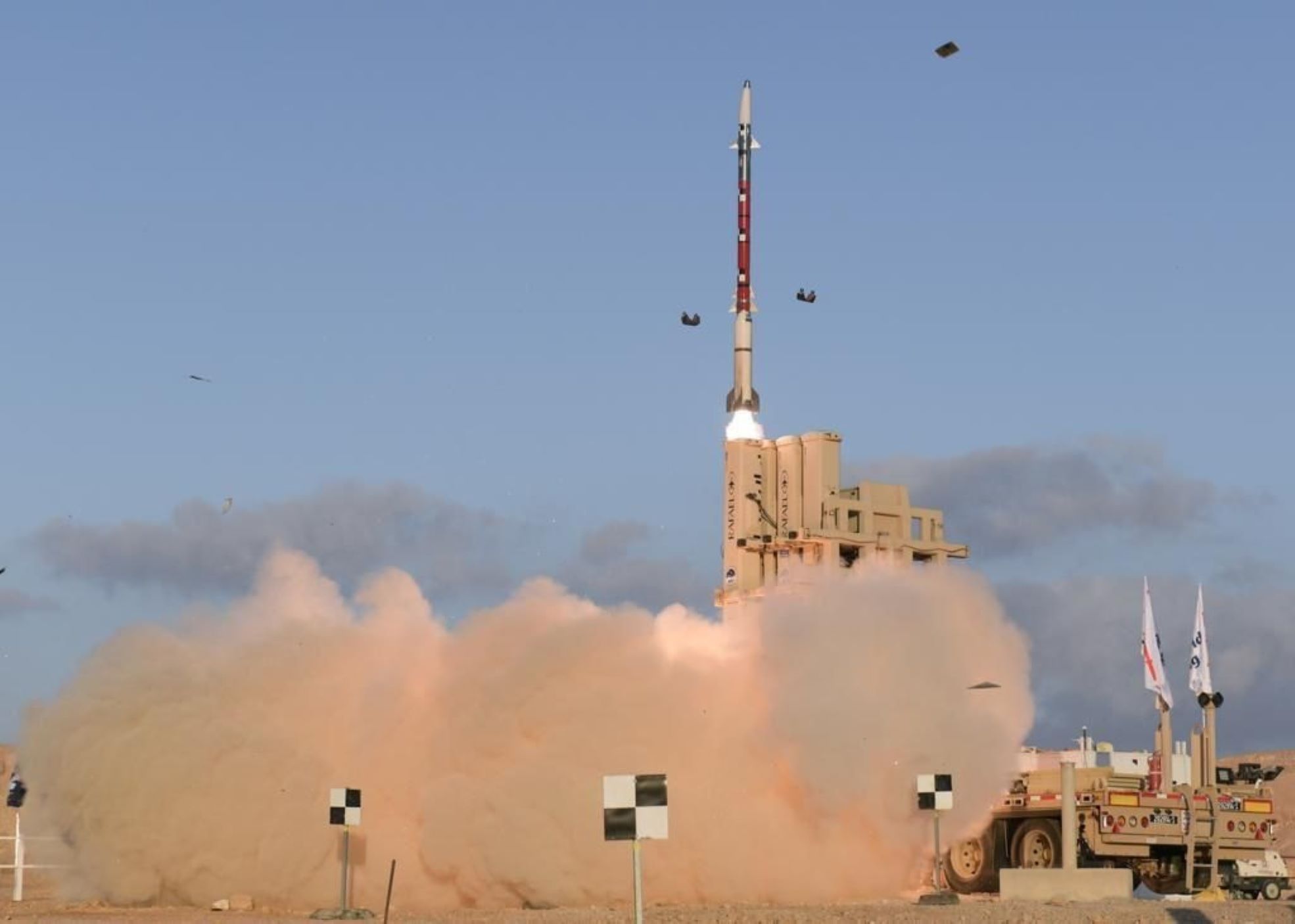In a stunning display of Israel’s prowess in military technology, the approval of IAI’s Arrow 3 system’s sale to Germany for a staggering $3.3 billion has sent shockwaves through international news outlets. To put this deal in perspective, the IAI’s total sales for the entire first half of 2023 amounted to approximately $2.5 billion. Experts and major defence corporations in Israel are predicting an even brighter future, projecting continued growth in demand for their products.
This enthusiasm isn’t unfounded. Israeli military tech companies have managed to stand out in a world grappling with escalating defence requirements. In 2022 alone, the three largest Israeli defence corporations experienced a notable ascent in their global rankings, according to the Defence News website. Elbit advanced from 31st to 21st place, IAI from 37th to 29th, and Rafael from 41st to 34th.
The year 2022 saw an unprecedented volume of contracts signed, reaching an all-time high of $12.5 billion. This marked the second consecutive year in which a new record was established, following the $11.3 billion in contracts signed in 2021. However, experts predict that this record is on the brink of being shattered once again.
Western countries, particularly Europe, are expected to allocate larger portions of their defence budgets to procure advanced technologies, with Israel being a prominent recipient. This trend is poised to continue in 2024, contributing to the continued rise in demand for Israeli defence products.
As Yossi Gasper, Vice President at Elbit Systems, explains, the average annual growth of defence budgets worldwide hovers around 3.5% to 4% in real terms. Notably, this growth isn’t uniform; it fluctuates across regions and time periods. Gasper identifies three key global conflict areas: the situation in Europe and Ukraine, the Asia-Pacific focus on China, and localized conflicts involving terrorism and cyberwarfare.
The high demand for weapons finds its roots in significant global shifts. After the annexation of Crimea in 2014, the world began to transition from preparing for low-intensity conflicts to gearing up for potential state-based combat threats. The Ukrainian conflict starkly highlighted this shift. This transformation, coupled with the inadequate production capacities of Western countries, has created a unique opportunity for Israeli defence companies to step in and provide superior technology with shorter delivery times.
Israel’s dominance in military technology is unmistakable, with a series of recent high-profile orders demonstrating its global leadership in the field. In a significant milestone earlier this year, Rafael secured a deal to supply Finland with its advanced David’s slingshot system. The contract, valued at 312 million euros, received the seal of approval from the American administration in August.
This isn’t the only remarkable accomplishment for Rafael in recent times. Another testament to Israel’s military tech prowess is the sale of Spike missiles to Greece, amounting to approximately NIS 1.4 billion. This transaction, which took place in April, underscores Israel’s ability to provide cutting-edge weaponry to bolster the defence capabilities of allied nations.
Moreover, Israel’s influence extends beyond land-based systems. Azerbaijan, recognizing Israel’s expertise, selected IAI for the supply of two satellites at a value of $120 million. This deal highlights Israel’s proficiency in space technology and its role in addressing a wide spectrum of military needs.
Even the largest player in the industry, Elbit Systems, consistently demonstrates Israel’s technological supremacy. The company secured a contract worth 280 million dollars for one of the EU countries to provide precision munitions, radio, and electronic systems.
These trends are positioning Israel’s defence industry for substantial growth. Economist Gili Ben Avraham from Bank Leumi forecasts that defence exports between 2023 and 2024 could total around $16 billion, equivalent to about 27% of Israel’s non-diamond industrial exports in 2022. This projected growth underscores the industry’s crucial role in driving the Israeli economy.
However, the benefits extend beyond mere economic contributions. Defence companies indirectly bolster the economy through employment opportunities, the balance of payments, and even the strengthening of the Israeli shekel due to major foreign currency influxes.
In the face of these burgeoning opportunities, Israeli military tech giants like IAI are thriving. In the first quarter of 2023, IAI recorded its most profitable period in history, boasting a net profit of roughly $165 million—an impressive 28% increase from the previous year.
Despite the positive impact of defence sales, there are some complications to reaping the benefits. Taxes, dividends, and government transactions are avenues through which revenue from defence sales flows into the state budget. However, due to the involvement of foreign subsidiaries, corporate taxes might not match those of other industries. Dividends play a role, but they aren’t transformative on the scale of the state budget.
As Israel’s defence industry continues to expand, managing the influx of orders and meeting the demands of customers while maintaining international commitments remains a key challenge. The industry’s ability to navigate these “positive problems” will significantly contribute to the country’s future economic landscape.
In conclusion, Israel’s military technology companies are currently enjoying a period of remarkable growth and success. Global demand for their products, fueled by shifts in international conflict dynamics and evolving defence needs, is propelling these companies to new heights. The impact is felt not only in the defence sector itself but also in the broader economy through increased employment, international trade, and economic growth. As defence budgets continue to rise across the globe, Israeli military tech companies are poised to be at the forefront of innovation and production, solidifying their position as global leaders in the industry.
Main article photo: David Sling defence system (Credit: Israel Ministry of Defence)





0 Comments